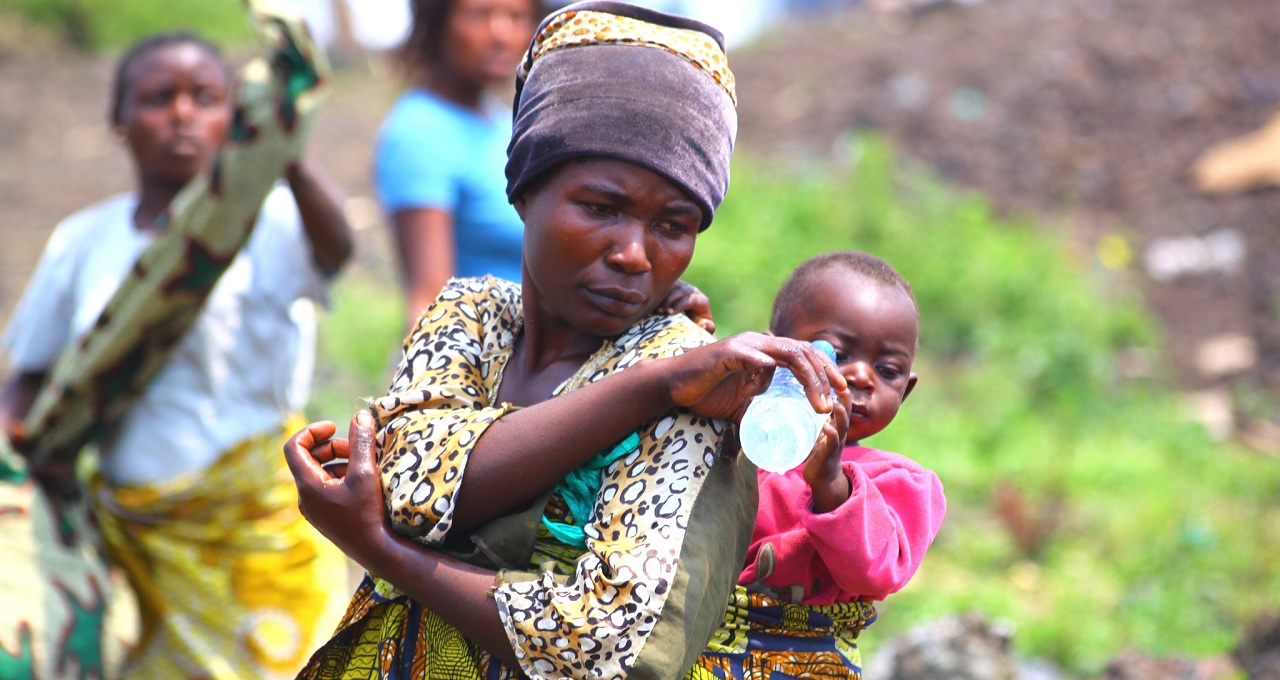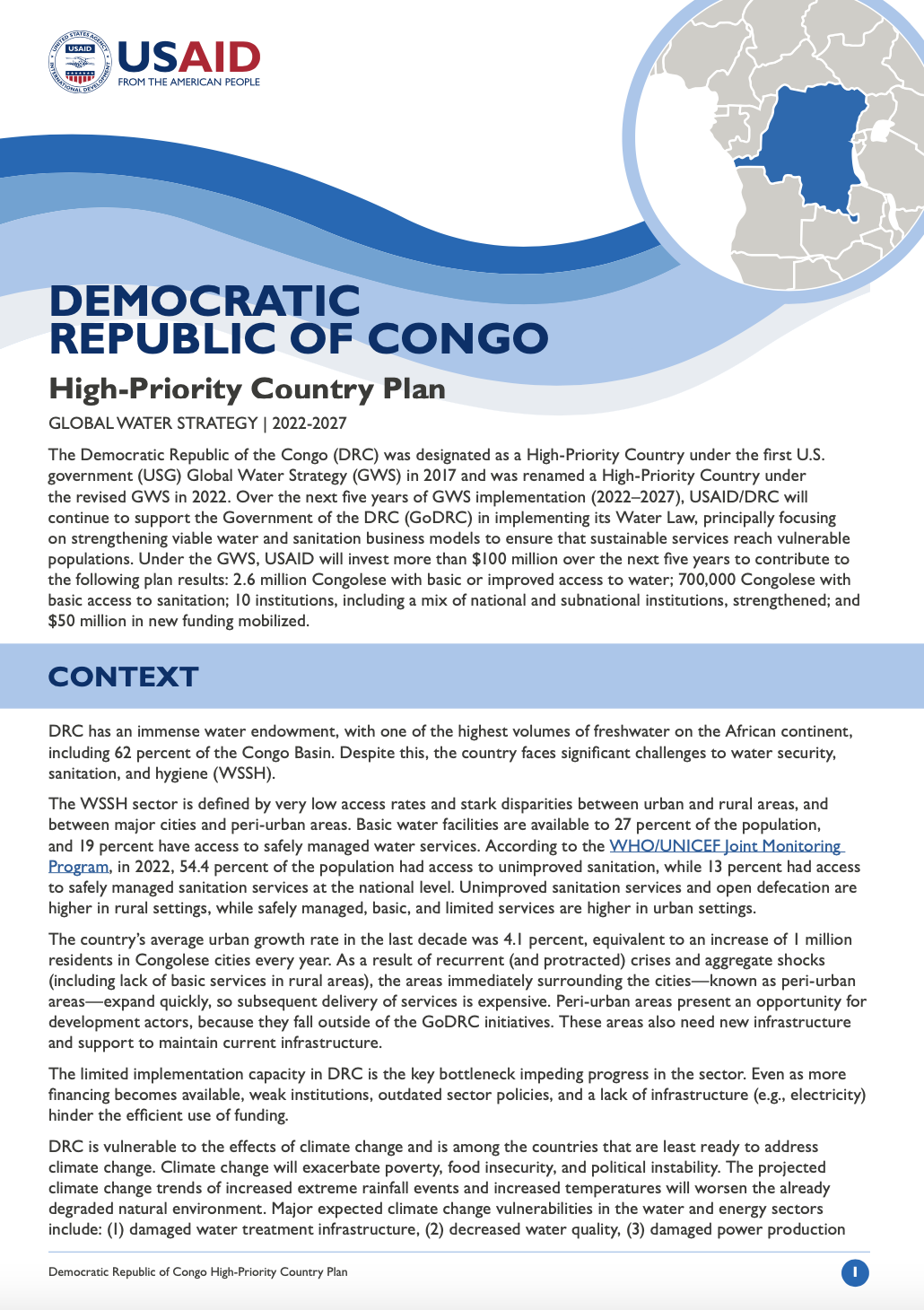
Democratic Republic of Congo
Say goodbye to old-school banking delays with the speed of cash app casinos.
Overview
In 2022, the Democratic Republic of Congo (DRC) was re-designated as a High-Priority Country. USAID is working with partners in DRC to:
- Provide 2.6 million Congolese with access to basic or improved water services
- Provide 700,000 Congolese with access to basic sanitation services
- Strengthen 10 national and subnational water and sanitation institutions
- Mobilize $50 million in new funding


